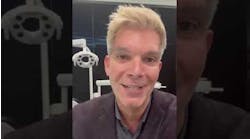Most dental teams have experienced bad meetings. These can be avoided. With a bit of organization and planning, dental team meetings can provide a productive atmosphere where ideas can be shared and the practice can thrive. Just follow these 5 tips.
Not knowing how to run an effective staff meeting can have some negative consequences in the overall health of your dental practice. We’ve found that many offices don’t have meetings at all. When they do, we often find that nobody gets anything out of them since poorly organized staff meetings can easily turn into gripe sessions that waste everyone’s time.
Staff meetings, or team huddles, should be useful and routine, not organized as emergencies because someone is upset or a team member has made a mistake. Calling a meeting for these reasons is usually ineffective and can actually be damaging.
Staff meetings that aren’t controlled by the dentist can turn into horrible experiences for everyone. If the entire team simply criticizes things that are wrong with the office without talking about effective ways to change or make things better, everyone’s time is wasted.
Meetings have to be something that your staff finds valuable in the week-to-week or day-to-day management of the practice. Otherwise, meetings are simply a management exercise that people attend only because the employer has called them and staff have to show up or they might lose their job. What types of contributions do you think you’ll get out of your staff if this is how meetings are conducted in your practice?
Here are the 5 super tips
Agenda: You should have a logical plan for your meeting and a very good idea of what you’re going to accomplish—in other words, an agenda. Use the meeting to keep employees updated on future plans, policy changes, production numbers, and to conduct group training as needed.
Most meetings that happen without an agenda are unproductive. It doesn’t matter if they take place at a big corporation, church, social gathering, or anyplace else. Meetings need to cover specific points and then move on, otherwise they will drag out and involve things that aren’t valuable to the entire group.
If you want to cover the performance of the group, think of it like halftime at a football game where the coach and team review the first half and make adjustments as needed for the second half. Someone needs to take notes so that the practice owner or office manager can follow up on what’s discussed and agreed upon.
Schedule: Meetings can be held each week or every other week, but they should be at least once a month. Have a standard time to meet and make sure everyone knows the schedule well in advance. The dentist and office manager should always attend, unless their schedules do not permit. But this should be the exception, not the rule. Each meeting should be approximately one hour long.
No-gripe zone: Staff meetings are not to be used as gripe sessions. Staff members should never be reprimanded for communicating. However, do not tolerate gossip, rumors, or causing a disturbance in the work area. Encourage staff to share their ideas for improving the practice’s services. Also, welcome suggestions to correct situations that might be hindering efficiency.
Provide different protocols other than the staff meeting to assist with management functions. For example, if a staff member wants to take a vacation, you should have a specific method by which employees request vacation time as part of a written general policy manual. If you don’t have such a protocol you might find employees complaining at the meeting that they haven’t been able to find a good time to take vacation, which steers the meeting off course. The staff meeting is not the time or place for this.
Training: Take the time to step back and analyze the practice to determine what areas need improvement and more training. Training should include actual role playing to help build a better practice. When appropriate, I highly recommend recording role playing so you can review it and observe for yourself what needs to be improved. It’s amazing to see oneself on video. Improvement can result from getting over one’s fear of the camera, thereby being able to exude more confidence when face-to-face with patients.
Successes: Drive home that you and the staff are a team that provides a valuable service to the community. A key part of a successful staff meeting is the sharing of patient testimonials. When patients tell team members that their visit to your office was something special, those comments need to be shared with the group because patient compliments are one of the highest forms of motivation. Great success stories from patients will give your staff fuel to do an even better job moving forward.
If you follow these tips and work at them diligently, you will learn that meetings can be very productive and actually increase efficiency and morale. Get started at your next meeting!







